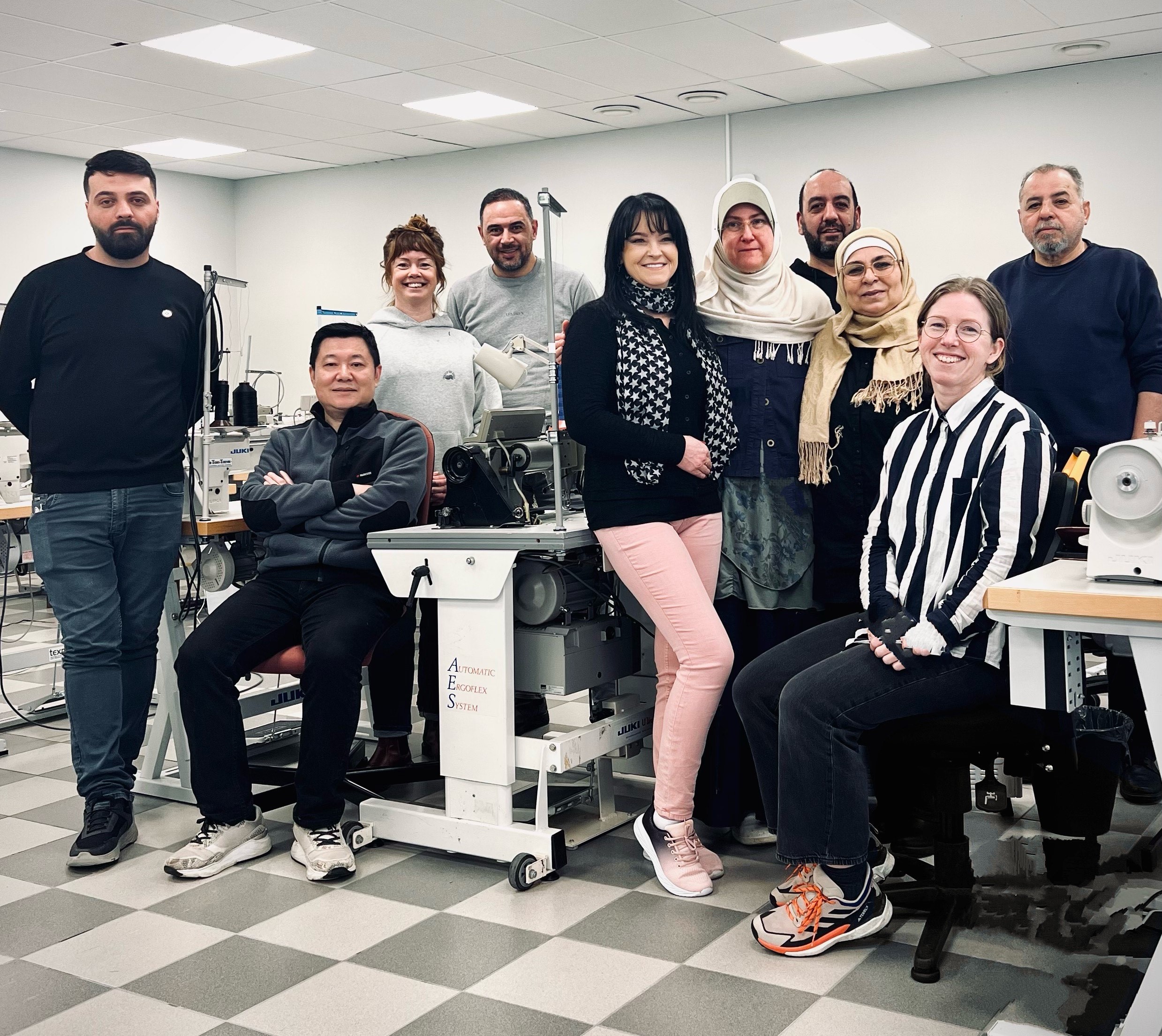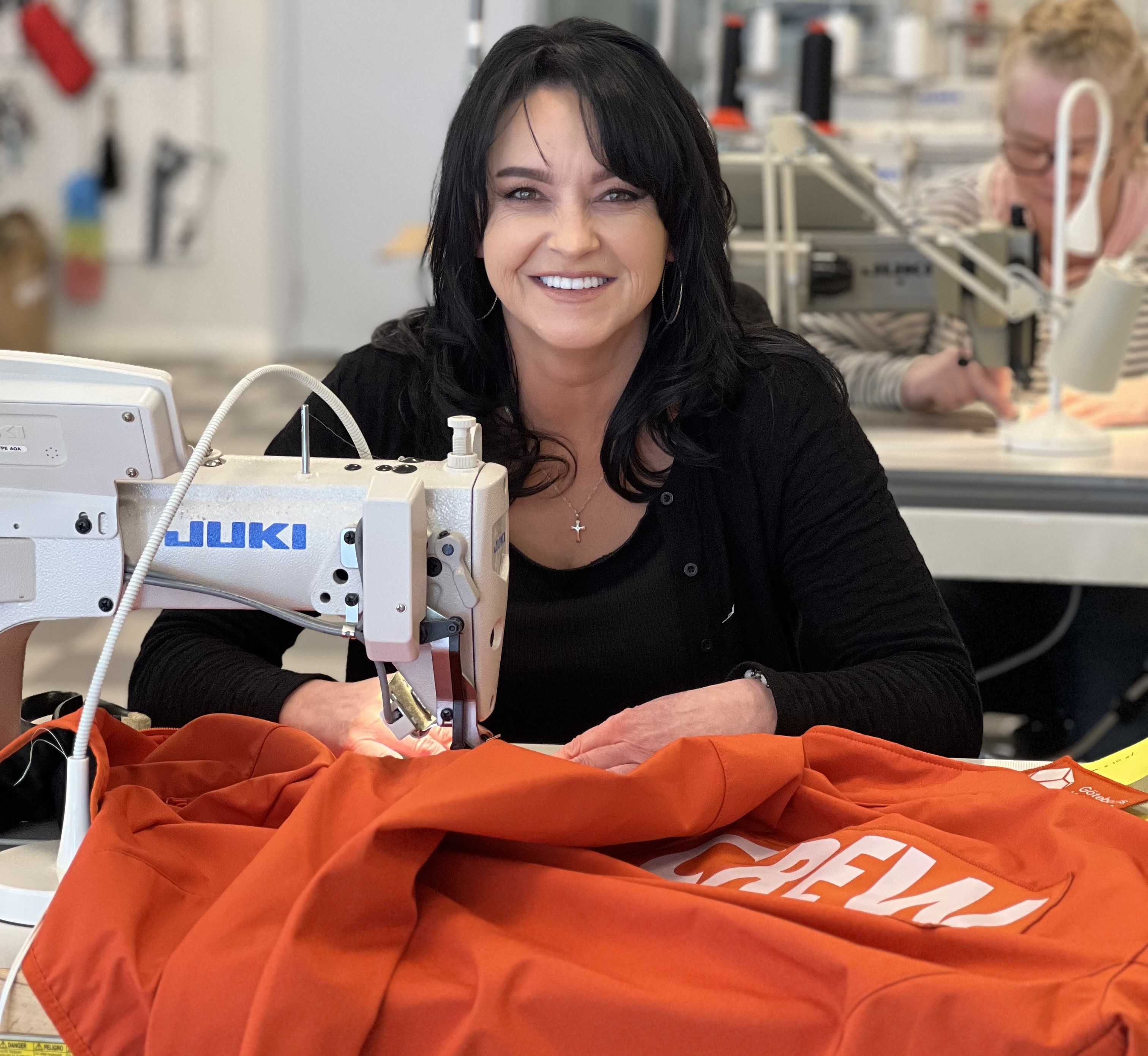
Fabrikörerna is a social cooperative based in Gothenburg, Sweden. It was started in 2016 under the name of ‘Thread and Trade’ by Forum Skills, a consortium for the creation of work inclusion social enterprises (WISE). Some people in Forum Skills saw an opportunity to create employment in the industrial sawing sector by employing migrants with good tailoring skills. The consortium was until then focused on the job inclusion of women, but this project aimed to go beyond and employ migrant women and men alike. They applied for financing from the Swedish Heritage Fund and developed, in collaboration with Coompanion Gothenburg, a center for cooperative development, the strategy and organization of the project. The funders had to learn everything anew in a very small setting, but the business plan was very clear from the beginning, setting up an industrial sewing business and working with and for big companies. Their first client, Scandi Orthopedic AB, was a company providing surgery for animals, which needed clothing material for when operating.
One main challenge in setting up the cooperative was the language obstacle, as most of the workers of the cooperative couldn’t speak Swedish. This pushed Forum Skills to develop a parallel project called ‘Swedish at work’ to offer Swedish classes oriented to employees. They patented a method that was then adopted and implemented by other social enterprises in Gothenburg.
“One of the successful factors that makes Gothenburg suitable for the development of social enterprises is that the various actors in the sector cooperate and share project ideas and outcomes to help each other develop, rather than compete” says Diana Ghinea, Coompanion Gothenburg development strategist who participated in the project for the creation of Fabrikörerna.
Two years later, in 2018, Emma Persson, a designer with a strong interest in workers’ rights and environmental issues in the textile industry, approached the cooperative as a client when she realized the cooperative needed an expert kick. Since then, she has been operations manager at Fabrikörerna, bringing to the team the necessary skills and understanding of the high-quality standards expected in the Swedish market.
Today, the cooperative has six employees and works only with reused materials to make products like bags, clothes, and home decor items for companies. Fabrikörerna focuses on reusing textiles that would otherwise go to waste. They have collaborations with second-hand organisations providing them textiles per kilo, like shirts or skirts, or pants, as well as with any event company that wishes to share with them material that would otherwise go to waste, such as big fabric prints for sports events. They also have collaborations with large laundry companies to clean the fabric before it is transformed.

Since January 2025, a new EU Directive requires companies to take responsibility for their unused textile instead of simply throwing them away. This change has made it harder for companies to manage their waste, but it has also brought more attention to what Fabrikörerna does. More businesses now contact them for help, as the team has a lot of knowledge and experience in working with reused materials.
Even though some companies still hesitate to use second-hand fabrics, Fabrikörerna proves that reused materials can become high-quality products, contributing to securing long-term collaboration with large companies.
While the team at Fabrikörerna includes six regular employees, the cooperative currently employs an additional 20 temporary employees as part of a government training scheme collaboration to foster work integration of migrants.
Not all workers speak Swedish as their first language, so the workplace also becomes a space to learn and grow together. They focus on creating a warm, welcoming environment where everyone supports each other. Some workers are more experienced in sewing, others in speaking Swedish or using certain machines. Everyone has something valuable to offer, and this teamwork is part of what makes the company successful.
“Other companies should come and learn from us. The cooperative model creates a unique, supportive work environment. Working with people who are far from the labor market and seeing them grow and succeed together is incredibly rewarding. I'm proud of every step we take as a team” says Emma.
When it comes to the governance of the organization, in the beginning, only worker members were on the board, which made it hard for them to balance daily work with strategic planning. Now, they have a board that includes both members and outside experts, who are nominated by the members and provide support to the cooperative according to their competencies. For instance, as part of their board there is also a representative from Coompanion, who helps and supports with the political and administrative aspects, and a customer with expertise in sustainability.
Anyone who works at the cooperative for more than six months can choose to become a member. To make sure everyone understands how the cooperative works, new members receive training. However, it can still be a challenge to join the board if you are not fluent in Swedish.
For Emma, working in a cooperative is deeply meaningful. She is proud of the way the team works together. Every small achievement feels big, and every product tells a story of collaboration, care, and commitment to a better future.
Fabrikörerna is supported by Coompanion, our Swedish member organization.









